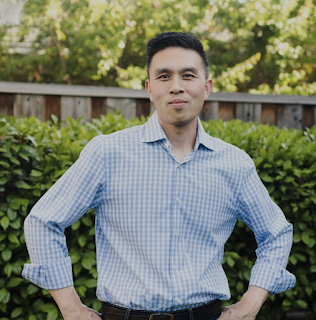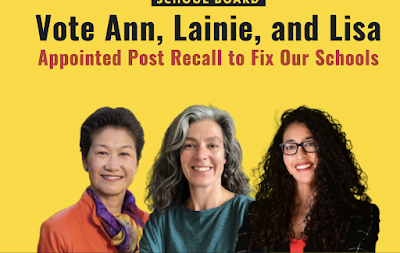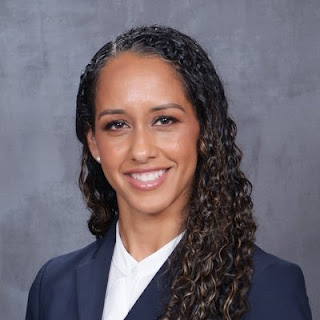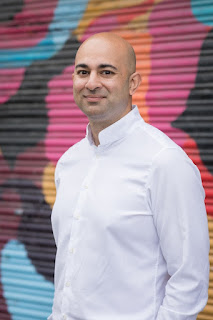 |
It's always darkest before the dawn. We can turn San Francisco around!
|
Here we go again! It's the fourth election this year in San Francisco, and I am here to share with you how I plan to vote.
Usually I write a very short intro of who I am and why I do this. But this election is different. The No. 1 issue in SF this year was whether or not to recall pro-crime District Attorney Chesa Boudin in June, and the local media failed us. All but one publication recommended voting to keep Boudin, but 55% of voters rejected him. Clearly local publications are out of touch with the electorate and many people might be looking for new guidance. So I wrote a long screed about who I am and what I believe: It's here. In it I listed some new publications offering pragmatic endorsements like mine, some of which you will see quoted below.
Before the endorsements, let me explain ranked-choice voting, which is used in San Francisco races. You do NOT have to choose more than one candidate. I usually don't. You CANNOT choose the same candidate twice (as your first and second choice, for example) as this will invalidate your vote. You can choose only a 1st choice, a 1st and a 2nd, or all 3.
If your first choice is eliminated, your vote will go to your second choice if she is still in the race. If she is eliminated and you don't have a third choice ... well, you lose. But to me, if my first two candidates lose, I lose anyway. I have never chosen all 3 because there have never been three good candidates, and that's true again this time.
One overarching issue to consider on local races is that we are likely entering a time of fiscal shortfalls. The downtown business district has not recovered from the pandemic, and that's going to hurt the tax base. Families have moved away from our dysfunctional school district, which means there will be less funds there as well. Everyone we elect this time is going to have to deal with cutting budgets. They must choose wisely and so must we.
So let's get to it!
Governor: Gavin Newsom
Newsom has had an up-and-down term, faced a recall himself, and might run for President in 2024 rather than finish out this second term as governor. However, his GOP opponent is anti-abortion, anti-legal cannabis, and pro-gun rights. This is not Texas.
Lt. Governor: Eleni Kounalakis
Kounalakis used her family's money to run for this do-nothing office and has successfully done nothing in it. Her opponent is a bank vice-president supported by GOP House minority leader Kevin McCarthy, who is smart enough to know Trump committed treason but too craven to do anything about it. If Newsom has a heart attack, we'd have a typical GOP conservative as governor. Kounalakis is a safer choice.
Secretary of State: Shirley Weber
Weber is a Democratic machine candidate. She was appointed to this job after Newsom appointed Alex Padilla to Kamala Harris' Senate seat. She's a former professor of African American studies and California assembly member. Grow SF likes the way she has stood up to California's powerful teacher's unions, while the Bay Guardian likes her progressive bona fides. What's not to like?
Controller: Lanhee Chen

I'm fighting a losing battle here, endorsing a Republican in California in 2022, but Democrat Malia Cohen is not qualified for this job and is running a disingenuous campaign.
Cohen had the worst attendance record when she was on the San Francisco Board of Supervisors. The board of equalization had most of its powers stripped away but the six-figure salaries remain, so Cohen ran for that do-nothing job and won. Now, she is claiming that her experience there gives her the ability to oversee California's budget. Moreover, she's making her pro-abortion stance the centerpiece of her campaign. 1) This is California: we're all pro-abortion here, including Chen. 2) The controller's job has nothing to do with abortion rights.
Chen was nominated by President Obama to sit on the Social Security Advisory Board. He was Mitt Romney's chief policy advisor during Romney's 2012 presidential campaign. He's a public policy professor at Stanford. I don't love all of his political positions, but he's a Romney Republican, not a McCarthy Republican. And the plain fact is that he's qualified to oversee California's budget while Cohen is not. The LA Times, which is very liberal these days, endorsed Chen.
Treasurer: Fiona Ma
Ma is a CPA who graduated from the San Francisco board of supervisors to the state assembly, then to the board of equalization, and she won this job in 2018. The best thing about her is that she ordered three external audits of the board of equalization, which is still using a lot of state money despite its powers largely being stripped. Her first term has some personal controversy, but she seems to have weathered it.
Attorney General: Rob Bonta (ugh)
I dislike this race, and might be making the wrong choice. Bonta was appointed by Newsom and immediately used his position to solicit donations to his wife's high-paying charity from firms with business before him.
That bothers me a lot, but Bonta has been good on the issues in a year and a half in office, notably on trying to force California's many anti-housing cities (like San Francisco) to build the new housing they are legally obligated to.
Because of my concerns about Bonta's integrity, it wouldn't be difficult to convince me to vote for a GOP Attorney General. I did so in the primary, but she lost. We may be better off with Republican Nathan Hochman, a former federal prosecutor and onetime head of the Los Angeles Ethics Commission. I'm deferring to the LA Times, which saw Hochman's work up close yet is endorsing Bonta for the same reason I am: Bonta is more likely to be aligned with Democrat values, and unlike controller or treasurer, this is a position where that matters.
Insurance Commissioner: Robert Howell
Democrat Ricardo Lara is corrupt: he took money from insurance companies and then intervened in cases on their behalf. He should be in prison, not on the ballot.
Lara is also not good on the issues. He wants to force insurance companies to cover high fire-risk buildings. I know this is a sensitive issue for the wine industry, but we need to look into our climate future here: the state shouldn't prop up construction in fire-hazard areas.
I don't know anything about Howell: his website is nearly devoid of info other than that he's a "Reagan Republican" who owns a small business in Silicon Valley. Ugh. He might be awful. But I know Lara is awful: both corrupt and wrong-headed. I'm taking the devil I don't know. And I blame the Democratic Party machine, which -- if it's going to run the state by itself -- should clean up its own trash.
Board of Equalization Member, District 2: Sally Lieber
The actual duties for this job have been eliminated so it's just a big paycheck for a Democratic politician (see Malia Cohen, above.) Lieber was smart enough to win the nomination, and her opponent looks like a garden-variety conservative. He has more policies online than she does -- she's a cypher and I'm not sure how she won -- but it just doesn't matter.
US Senator: Alex Padilla
There are two spots on the ballot for Padilla, who was appointed to fill Kamala Harris' Senate seat: one to finish this term (why did they wait until now?) and one for a new six-year term. Padilla hasn't distinguished himself one way or the other in the Senate, but his opponent Mark Meuser is a GOP lawyer whose claim to fame is that he has sued Gov. Newsom 22 times, and defended some right-winger from a lawsuit by "one of antifa's front groups (sic)." Also, according to his website, Meuser reads one book per week. Being in the Senate might prevent Meuser from finishing "The Expanse" series (no spoilers!) so we'd better send Padilla.
US Representative, District 11: Nancy Pelosi
A few years ago I wondered if it was time for Pelosi to step aside for new leadership in the House. I was wrong: Pelosi has had an outstanding last two terms. She helped keep the country from going completely haywire under Trump. And her whip skills for the past two years in the House are underappreciated. The Democrats have a very small (220-212) majority, and the left and moderate wings of the party are far apart on issues, yet the House keeps passing legislation anyway; it's the Senate where it all bogs down. If the Democrats lose control of the House next year, which seems likely, Pelosi, who will be 83 in March, may decide to step down from a leadership role. If so, she'd be doing so at the top of her game.
Her opponent? Be serious -- San Francisco is not sending a Republican to the House in 2023.
State Assembly Member, District 17: Matt Haney
Matt Haney has been in this seat for a few months now and it's possible that he's the next rising star of San Francisco politics. That may not be a good thing. While on the school board, Haney was the joker who came up with the idea of renaming schools named after racists like George Washington and Abraham Lincoln. You won't see that anywhere on his campaign materials. Progressives are angry at him for lurching centrist to campaign for the assembly job, but the moderate Democrat vote is far more important for his future statewide ambitions. Haney is a good speaker, but he's also a political opportunist.
But his opponent David Campos was Chesa Boudin's top aide, and his political brand is "uncompromising leftist," which is commonplace on the SF board of supes, but in the state assembly just means you get nothing done.
California Supreme Court and Court of Appeals justices: Yes on all
Judges should not have to run for election. The US Supreme Court is making that argument harder to understand, but we don't want justices considering the electoral effect of their rulings: only what's fair. Judges should only be voted out in cases of malfeasance or extreme incompetence. None of these judges have been accused of that.
It's tempting to go through the list of judges who keep releasing career criminals in San Francisco and hold them accountable. But these judges are higher level than that.
Superintendent of Public Instruction: Tony Thurmond
I dislike Tony Thurmond, a Democrat owned by the teachers' unions. But here is an answer by his GOP opponent Lance Ray Christensen to a questionnaire sent by Grow SF: "We recently moved to Wheatland to be closer to our roots where we could raise our children in the ethics of hard work and in a community that values family, faith and freedom." That sounds like a right-wing dog whistle to me.
VITAL RACE
Member, Board of Education: Lisa Weissman-Ward, Lainie Motamedi, Ann Hsu
Earlier this year we recalled three incompetent members of the school board. Before their recall, the board refused to pass a budget or discuss a plan to reopen schools, but it did find time to rename 44 schools that had been named after notorious racists like Abraham Lincoln.
The worst of those three board members -- Gabriela Lopez -- is right back on the ballot. There should be a law against that. She was elected in 2018 by just 13.7% of voters in a 19-candidate race. She was recalled in February by 72% of voters. We clearly don't want her! Yet progressives support her so she might win again. The second most important thing on this ballot, locally, is to keep her out of office so we can keep the school board from sliding back into dysfunction.
Lopez is terrible: she is the only board member who supported Alison Collins' $87 million suit against the city. (Collins made racist remarks against Asians and was forced to resign as board vice-chair; she thought her hurt feelings entitled her to 7% of the annual school budget.) Lopez was board chairman yet complained about having to deal with budget issues, and avoided it so long that the state nearly took over our schools. She lectured parents at board meetings and gave one the finger on Twitter.

You may have noticed we don't hear much about the school board anymore. That's because post-recall, once Mayor London Breed appointed Hsu, Motamedi and Weissman-Ward, they got to work. They dealt with the budget mess left by their predecessors. They put Lowell High School back on the right track. Progressives in SF these days believe that "merit" is racist, and that all students should get the same education as the lowest achievers. That philosophy hits Asian kids especially hard; for years, poor Asian families encouraged their kids to study hard so they could get into Lowell to get the kind of quality education that white progressives send their kids to private schools for. There's a distinctly anti-Asian tint to the progressive school board candidates. Collins' mistake was saying the racist part out loud.
Lopez is not the only bad progressive candidate on this ballot. "Diversity Inclusion Educator" Karen Fleshman was so involved in the Chesa Boudin cult that she physically stole a banner supporting his recall. Putting these two on the board would take us right back to the days of 6-hour meetings where nothing is accomplished and parents are lectured and given the finger. And don't forget: very soon the board is going to have to deal with a smaller budget because we have fewer students. It will be ugly: classes will be eliminated, teachers might be laid off, schools might close. It's going to happen no matter who we elect, but we should elect people who can make good choices in that situation, not avoid it entirely as the pre-recall board did.
Please, please re-elect Hsu, Motamedi and Weissman-Ward. I would write 4000 more words on this if it would convince you. Please. I'm tired of our school board being a laughing stock as well as a budgetary sinkhole.
Community College Board (term ending 2027): Jill Yee, Marie Hurabiell, Thea SelbyI always hate this election, in large part because of the lack of information about the candidates. For years the Guardian recommended ideologues and they won because the Chronicle, the dominant local media, ignored the race. That led to a dysfunctional board that nearly cost the college system its accreditation.
Fortunately Grow SF has stepped up to do what the Chronicle never did: take this race seriously. I recommend that you read
Grow SF's no-endorsement, in which it narrows the candidates down to four acceptable ones. Let's not stray from those four: budget cuts are likely to be needed this year and we need board members who can hold adult conversations about them. Please don't vote for candidates who say they will fight budget cuts because that's not how it works, and you would be electing someone to do a job that they don't want to do.
I chose these three from the Grow SF quartet because this board was a huge problem until about five years ago, so anybody from the board before that should not benefit from incumbency.
(By the way, if somebody from Grow SF reads this ... please don't do the "no endorsement" thing. We're going to vote anyway. We have to make a decision so you should too.)
Community College Board (term ending 2025): Murrell Green
Green was appointed to this board by Mayor Breed. The other two candidates' websites say their focus will be on preventing classes from being eliminated. Sorry, but that isn't going to be possible if the budget is cut. The bad old CC board would spend hours fighting over class cuts and wind up not making any decision at all. Let's not go back to that.
Assessor-recorder: Joaquin Torres
Torres was appointed to this job in 2021 and is running unopposed. I don't have any reason to not vote for him, and it wouldn't matter if I did.
VITAL RACE
Remember, you can vote for one to four candidates, but you don't have to. I'm only voting for two and recommend you do also. Do NOT vote more than once for any one candidate or your vote will not count.
District Attorney: Brooke Jenkins 1st, Joe Alioto Veronese 2nd

Even after being recalled, former pro-crime DA Chesa Boudin looms large over San Francisco politics. Hatred of his appointed successor Brooke Jenkins caused Hearst to debase itself so utterly that I won't even read the Chronicle's endorsements anymore because I don't condone misogyny (for that story,
read my intro). And I'm not even on the bitter political side. Boudin supporters are angry and want to take their anger out on someone. I hope it's not the city itself, but that's a real possibility in this race.
How badly do progressives want this? Austin Hills, scion of the coffee-bean family fortune that also owns Grgich Hills winery, tried to run for it, only to learn
he didn't fit the minimum requirement of being an attorney. Trust-fund progressives, sigh.
This is part of a national progressive movement: after we recalled Boudin, progressives around the country immediately dumped on San Francisco, accusing us of being right-wingers and/or duped by Republican billionaires, and hoping our city deteriorates further. Nice!
Boudin's not running again this time, and the progressive who is on the ballot is the dream of those out-of-towners who want to see more crime here. John Hamasaki must be stopped. Which candidate stops him is not important. If he wins, the quality of life here will go down overnight.
"Overnight" is not an exaggeration. The No. 1 problem during the Boudin regime was not Boudin himself: it was the unofficial work slowdown by San Francisco police, who told residents multiple times they wouldn't bother investigating crimes or arresting people because Boudin wouldn't prosecute them anyway.
That's a huge problem: I don't like being held hostage by our own police department. But electing a DA the police hate even more is not going to solve it. Hamasaki was the most angry, aggressive member of the police commission. He is not an even-tempered person: he had to delete 8509 tweets to run for this office. You can search them to learn why. He doesn't think teenagers arrested with assault weapons should have those weapons confiscated. He enthusiastically videoed a sideshow that stopped all traffic on the Bay Bridge after a gang funeral. Hamasaki frequently defends gang members and might be one himself.
He's also not qualified. Boudin at least had been a public defender. Hamasaki has never held a government job. He has never supervised a department; he has only one employee. He has never set a budget. He's a defense attorney with an affinity for gang members. He has all the integrity of Saul Goodman.
UPDATE: Since my first draft I learned Hamasaki has credit-card and tax liens against him AND had a domestic violence accusation filed against him this very month, seeking a restraining order against him. THIS is the progressive candidate for DA? Why are you doing this to us?
I defended Jenkins online from Hearst's misogynistic attacks on general principle, and I'm going to vote for her first because I think she deserves more than three months to show us if she can do the job. She was a homicide prosecutor, including under Boudin, and she seems to be good at politics. One huge improvement over Boudin is that she will talk to groups that don't agree with her. This job will be on the ballot again either this year or next, depending on Proposition H, and we'll have a better assessment by then of whether she's good at it.
But I can live with Veronese. He and Jenkins both say they want to stop the open-air fentanyl markets that have led to more overdose deaths in this city since 2020 than deaths by Covid. (Hamasaki is pro-fentanyl dealers; of course he is.)
If you are so angry at Jenkins that you can't abide voting for her, let's meet in the middle at Veronese. Please don't put a gang lawyer in charge.
Public Defender: Mano Raju (1st only)
I don't love Raju, who has expanded his job past defending clients into agitating for reducing police funding and other progressive social justice goals. There is no shortage of local nonprofits who make those arguments. But his opponent quit the PD's office to go work for Chesa Boudin. Raju at least stayed in the job he's supposed to be doing.
State proposition 1 (Constitutional right to abortion): Hell Yes!
This would codify any woman's right to abortion in California. It is necessary after the Trump Supreme Court took away women's rights to control their own bodies. California is going to be an important sanctuary for women around the western US, and we should embrace that role.
State proposition 26 (Online gambling controlled by Native Americans): No
We have two props that would allow online sports gambling. I'm against both. I'm a prude on online gambling. If gamblers have to make some minimal effort -- driving or flying to Las Vegas -- then almost by definition they're not spending their kids' lunch money. Online sports gambling will lead to more child poverty and homelessness.
Both of these props are offensive not because of the issue itself -- clearly many people disagree with me on online gambling -- but because they represent an attempt by one entity to grab a monopoly on it. This prop would give a monopoly to Native American tribes. I'm vehemently against that AND YET it's still better than prop 27.
State proposition 27 (Online gambling controlled by mega corporations): NO
If you want to vote for online sports gambling, please choose prop 26, not this one, which would require that companies that run it pay a $100 million license fee. This is a naked power grab for the biggest gambling companies, none of which are local: BetMGM, DraftKings and Fan Duel. It would allow these companies to set the rules and regulate the business.
If we're going to allow online gambling, we really should let the legislature write the bill. Both of these bills are written by the entities that would profit from them. California deserves better.
State proposition 28 (arts and music school funding): No
This would require the state to set aside 1% of school funding for arts and music education. This is a typical ballot funding mandate issue; it sounds like a good idea, but those funds are going to come from somewhere. This would force the state to spend nearly $1 billion on arts and music education, and if the budget shrinks, those funds are untouchable. Arts and music education is a good thing, but setting a funding mandate makes it the most important thing.
State proposition 29 (union attack on people who need dialysis): NO, DAMMIT! (Didn't you get that the first time?)
California voters have rejected this attack on people who need dialysis twice before, in 2018 and 2020, but the powerful SEIU supports it so it's back on the ballot. It would require a doctor to be on-site for all dialysis treatments. That's expensive. Clinics would close. Some dialysis patients would die. Don't do this.
State proposition 30 (tax the rich and spend it on electric cars): No
This is funded by Lyft, which would benefit from it. I like what the Bay Guardian said about this: "The great modern economist Thomas Piketty says: Taxing the rich today is a good idea, by definition, no matter what you do with the money. Taking income and wealth from the top 1 percent always makes society more equitable." Sure, but Lyft is a $3.8 billion company, and that's pretty 1% also. It's just moving money around between rich people.
State proposition 31 (bans flavored tobacco): Yes
The state banned flavored tobacco, but the big tobacco companies gathered enough signatures to put it on the ballot. The whole purpose of flavored tobacco is to turn young people into lifelong nicotine addicts. "Yes" keeps that from happening here.
City proposition A (increases pension money for older retired city workers): No
This would put a cost-of-living increase on the pension for city workers who retired before 1996. I'm sure this is going to pass and maybe it even should, but city pensions are already quite generous. I feel hardhearted voting no, but just think about all those former SF cops who are going to get this money.
City proposition B (puts Department of Public Works back together): Yes
Matt Haney foolishly proposed a 2020 measure to split DPW in two, and voters foolishly approved it. We were feeling a little burned by the Mohammed Nuru scandal at DPW.
But splitting the department in two made no sense and just added bureaucracy and extra costs. What DPW needs is oversight, not two separate divisions.
DPW, incidentally, is responsible for cleaning our streets. DPW is doing a terrible job. I see more human feces on the streets now than ever. I understand the anger at DPW. Maybe by the next election we can come up with a better idea for fixing it.
City proposition C (creates homelessness oversight commission): No
We spent $1.1 billion on homelessness last year for about 9000 people, with little to show for it. It's not a bad idea to put somebody in charge of seeing what the hell we're doing with all that money.
The problem with this proposition is that it reserves every commission seat but one for people in the homeless industrial complex: companies that benefit from keeping our homeless population high. They're not going to solve the problem; they're going to find a way to make more money for themselves from it.
City proposition D (streamlines housing construction approvals): Yes
Housing is not my main issue and that has enabled me, for years, to stand aside amused at San Francisco progressives' NIMBYism. Progressives support housing projects as long as they are affordable, sustainable, allotted by social justice standards, shaped like a banana and able to levitate.
We have a shortage of housing. We won't fix it by continuing to not build housing. Market-rate housing is not the devil: we have rent control here. You can't say you're "pro-housing" while continuing to oppose every single housing initiative.
City proposition E (prevents new housing from being built): No
The board of supes was so upset that Prop D might lead to new housing being built that it put this on the ballot. Don't fall for it; the whole point is to overturn D.
City proposition F (library preservation fund): Yes
This reauthorizes an existing 0.025% property tax to fund the library system. I'm a big fan of the public library, which among other things allows kids of any income level to have access to free reading material. I would vote yes for this twice if I could.
City proposition G (grants for schools from general fund): No
This funding measure is a bit complicated. The state typically collects property tax for school funding and redistributes it to schools first. The extra, about $300 million a year, can go into the general fund. This would make those funds available for schools, which would have to apply for them, but some percentage of it would be required to be spent on schools.
I like the idea, but I don't like new funding mandates in this environment. The city might be scrambling for funds in the next year or two. We might want to spend this money on schools, but we should keep our options open.
City proposition H (changes city elections to presidential years): Yes
We have had 4 elections this year in San Francisco, and we haven't even voted on mayor, sheriff, city attorney or treasurer. The only reason we've voting on district attorney is because of the recall.
Most likely San Francisco was set up to have these important city officials elected in non-presidential election years so that a minority of interested voters could control them. Exactly which minority has shifted over the years; what likely started as a white male power grab now benefits whatever political group is the most motivated.
We could analyze which group would benefit from moving those elections to presidential election years, but I don't care. More people vote in presidential election years. I'm pro-democracy. Having more voters turn out to choose the mayor and DA is a good thing.
Progressives might grumble that this gives Breed another year, and law-abiding citizens should quake in terror at an extra year for Hamasaki. I would rue the latter (we all would soon enough), but that just shows that the idea itself is apolitical.
City proposition I (reopens JFK Drive to car traffic): No
City proposition J (keeps JFK Drive closed to cars): No
Props I & J are my most difficult decisions on this ballot. On most issues I know where I stand pretty quickly. I don't feel good about voting either way on either of these measures, and frankly I wish they weren't on the ballot.
The debate is over JFK Drive in Golden Gate Park as well as the Great Highway, both of which Mayor Breed closed to car traffic during the pandemic. This was the dream of a lot of relatively well-off people who like having their own private park. The Great Highway has since reopened on weekdays but JFK Drive is now "JFK Promenade," with no cars allowed.
I don't think JFK Promenade supporters realize how classist their position is. Golden Gate Park should be an important recreational space for everyone, but Muni service there is weak. Where I live, I can drive to the park in about 20 minutes but it would take about 2 hours, one way, by bus. I like walking on pedestrian-free JFK Drive, but I prefer driving and parking there and then walking. Supervisor Shamann Walton complained that his constituents can't use the park if they can't drive to it.
The Great Highway is another problem. The city was not laid out with any good north-south alternatives in that area. With the Great Highway closed, more traffic has been diverted to become stop-and-go on local streets. Also, people who would have parked on JFK Drive are circling around looking for parking nearby instead.
I don't like Prop I in part because it was written by a socialite in support of the deYoung Museum. I get that, though: People with limited mobility can no longer visit the museum. I spent some time talking about Prop I with a disabled man at a farmers' market, and it's difficult to dismiss his concerns.
However, Prop I also overturns a 10-year-old plan for the city to close the Great Highway south of Sloat in order to build a seawall and protect a wastewater treatment plant. And it demands that the Great Highway be open 24/7 when closing it only on weekends is a reasonable compromise.
Prop J was put on the ballot by the Board of Supes to basically codify the status quo: it's a competing measure, but it would also hamstring the board against making future changes without another referendum. If Prop I fails, there's no reason to vote for Prop J, and thus I will not.
By the way, Prop N makes a difference if it passes. Check it out below.
City proposition L (sales tax to fund Muni): Yes
This measure reauthorizes a 1/2 cent sales tax to fund mass transit, with most of it going to Muni. Muni is pretty terrible and this city should have better public transit, but cutting off its funding isn't going to make that happen.
City proposition M (tax on vacant apartments): No
My instinct is to vote Yes on this, because I agree with the Democratic Socialists that I'd like to see landlords who have removed rental housing stock for Air BnB pay up.
However, I was persuaded by GrowSF's argument that this bill will not help. The problem is that it doesn't apply to single-family homes; only to large apartment buildings that have an apartment open for more than six months.
The (un?)intended consequence is that developers will be less interested in building more apartment buildings. But the Democratic Socialists hate new housing projects anyway, so maybe that's a feature? It isn't for me. I'm going to vote No and hope this bill comes back with a provision that targets all rental property, not just apartments in large buildings.
City proposition N (city control over Golden Gate Park parking garage): Yes
For some reason, city voters in 1998 took the Golden Gate Park parking garage out from under city control and put it in control of a separate public entity, the Golden Gate Park Concourse Authority, over which the city has no power. What the hell were they thinking?
The main selling point of Prop I is that working-class families need to drive to the park to enjoy it, and there aren't enough places to park cheaply. The city could change that. If JFK Promenade remains closed to cars, we could subsidize parking in the garage. Right now it costs up to $30 a day.
Voters made a bad and inexplicable decision in 1998. We can and should fix it.
City proposition O (parcel tax for City College): No
This is the definition of throwing good money after bad. City College can't keep to its budget, nearly lost its accreditation, and now is asking for additional funding at the ballot box. I don't mind taxing landowners but City College hasn't demonstrated that it can responsibly use the money it gets now.




















